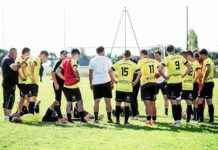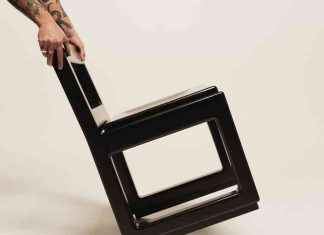The saudi arabian government official – whoever that is – who gave the order to execute and dismember Jamal Khashoggi, must have thought he could get away with it.
the Bombing was not a suicide mission.
The 15-strong avrättningspatrullen crept not into Turkey unnoticed. They left clear traces of itself in the short time they lived in Istanbul. They were cheeky and self – confident- a clear sign that it is a question for experienced assassins. We can only speculate as to what their previous victims have been.
When they finally admitted that it was Supertotobet the murder rushed of many journalists in the arab world to Saudi arabia’s defense. What the saudi pipeline than said accepted it without the slightest questioning of the journalists.
Journalists in the west pays tribute to Saudi
And they were not alone. Saudi arabia has a strong stödtrupp: a smaller, but very influential, group of western journalists who, for over a year has told you about the new, reformist saudi Arabia and the winds of change being blown over the desert – tones, the director pieces the visions and aspirations which have been praised all over the world.
Saudi arabia’s crown prince Mohammed bin Salman. Photo: TT
When so many journalists are determined to turn a blind eye to wrongs, it is hardly surprising that the one who ordered the murder of Kashoggi thought that the story would never come to light.
Why would journalists care about the murder of a single person on a modest consulate in Istanbul when they systematically ignored the thousands of deaths in Yemen and in other places? It didn’t look like you took a major risk.
We in the media should therefore also part of the blame for the murder was ordered. And the shame suffered by the saudi Arabia, and its decades of ”plånboksdiplomati” to bind the allies to themselves and to silence critical medieröster, it also affects us.
the Middle east exceptionally dangerous for journalists
We know that it is not easy to engage in journalism anywhere in the world today, not even in the US which had previously been a symbol of free speech and democracy. But the lack of freedom of the press and the constant risk it means to engage in journalism in the Middle east on an unprecedented scale.
As a journalist I exposed to government pressure in a way I never experienced before.
During the seven years that have passed since the arab spring of hope turned into the deepest disappointment. As a jordanian, I have seen how civil and political rights are restricted. As a journalist I exposed to government pressure in a way I never experienced before. These years have also been the most difficult for the Arab reporters for investigative journalism (ARIJ), with governments that continue to implement new measures that threaten the freedom of the press.
You are withholding information, censoring or forcing the media to self-censorship, threaten, imprison, and now also kills journalists.
Murdered Jamal Khashoggi, together with his fiancée, Hatice Cengiz. Photo: the Private
Arab government officials can break the law without risk of punishment. They can be assured to not be held accountable in their own countries and the western world is often disregarded for what they do.
are you Working for or against the regime?
Our role is to be society’s watchdogs, to identify shortcomings and to demand solutions, uncover injustices and problems, and give a voice to the weak and those without hope, and ask the corrupt and the incompetent to account.
It is sketch even on a new cyberbrottslag. It would punish anyone who publishes something on Facebook or Twitter that can be misinterpreted by the authorities.
The politically polarized press we have in large parts of the area today is often seen as a destabilising force and a source of disagreement. It must also be said that our professional standards and professional ethics have fallen and we lack a serious form of self-regulation. But it does not excuse the oppression that our reporters encounter in their daily work.
In country after country fought free speech
Egypt , where ARIJ has worked with over 100 journalists, have the risk of being imprisoned increased significantly under president Abdul Fattah al-Sissis regime. More journalists have been imprisoned over the last five years than in all the 30 years that Hosni Mubarak was in power.
Sana’a , Yemen, checks huthirebellerna all media companies. Journalists are threatened, attacked and kidnapped on a regular basis.
saudi Arabia, Qatar and the United arab Emirates has made large investments in local TV stations and the pan arab newspapers who now works as a PR-machinery.
Syria has never had a free press. But now it has become one of the most dangerous countries for journalists. They are caught between the regime and its allies, and the armed opposition groups, including the kurds and ICE.
Jordan , the west’s minion, have the journalists belong to the closed, and the state-controlled Jordanian Press Association. It draws also on a new cyberbrottslag. It would punish anyone who publishes something on Facebook or Twitter that can be misinterpreted by the authorities.
the Network ARIJ deserve strong support
It is against this bleak background that ARIJ is holding its eleventh annual meeting in Jordan, 30 november to 2 december, on the theme ”Investigative journalism: trends, tools and technologies” (Investigative Journalism; Trends, Tools and Technology). All ARIJEANS, as the network’s many members call themselves, deserves a strong support and reward for courage, integrity and commitment while they continue to pursue their ”impossible” mission in the world’s most dangerous region.
We will not be content to quietly watch. We will be prepared for the worst and continue to fight for the freedom of the press, rule of law, transparency, justice and human dignity.
Journalist
the President of the pan arab network Arab reporters for investigative journalism (ARIJ) since its formation in Amman in 2006. ARIJ is funded by SIDA, IMS, DANIDA, OSF and the Norwegian and the Dutch ministry of foreign affairs.








